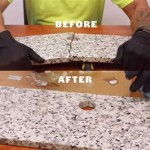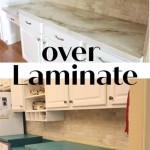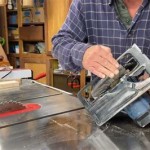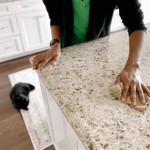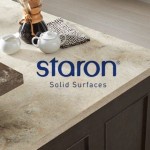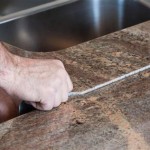What Type Of Countertop Do I Have?
The first step to caring for your kitchen countertop is to determine the material it is made of. Laminate, granite, quartz, solid surface, tile, butcher block, concrete, and soapstone are some of the most common countertop materials. Here are some tips to help you identify the type of countertop you have:
Laminate: Laminate is a popular choice for budget-friendly countertops. It is made of a thin layer of plastic that is bonded to a particleboard or plywood core. Laminate countertops are available in a wide variety of colors and patterns, and they are resistant to heat and stains.
Granite: Granite is a natural stone that is known for its durability and beauty. It is composed of minerals such as quartz, feldspar, and mica, and it is available in a wide range of colors and patterns. Granite countertops are heat-resistant and stain-resistant, but they can be scratched if not properly sealed.
Quartz: Quartz is a man-made material that is composed of quartz crystals and resin. It is harder than granite and more resistant to scratches and stains. Quartz countertops are available in a wide range of colors and patterns, and they are non-porous, which makes them ideal for use in kitchens and bathrooms.
Solid surface: Solid surface countertops are made of a blend of acrylic and polyester resins. They are non-porous, which makes them resistant to bacteria and stains. Solid surface countertops are also heat-resistant and scratch-resistant, and they can be repaired if damaged.
Tile: Tile countertops are made of ceramic or porcelain tiles that are installed on a backer board. They are available in a wide variety of colors, patterns, and textures, and they can be customized to create a unique look for your kitchen. Tile countertops are heat-resistant and stain-resistant, but they can be chipped or cracked if not properly installed.
Butcher block: Butcher block countertops are made of solid wood, such as maple, oak, or walnut. They are naturally antimicrobial and resistant to heat and stains. Butcher block countertops require regular maintenance, such as oiling and sealing, to keep them looking their best.
Concrete: Concrete countertops are made of a mixture of cement, sand, and water. They are durable and heat-resistant, and they can be customized to create a unique look for your kitchen. Concrete countertops require sealing to protect them from stains and moisture.
Soapstone: Soapstone is a natural stone that is known for its soft, soapy feel. It is non-porous, which makes it resistant to bacteria and stains. Soapstone countertops are also heat-resistant, but they can be scratched if not properly sealed.

Choosing A Countertop For Your Kitchen Look At The Differences Factory Direct Renovations Group

Countertop Comparison Chart Which Material Is Right For You

Countertop Comparison Chart Which Material Is Right For You

How To Tell What Kind Of Countertop You Have E B Granite

The Ultimate Guide To Choosing A Kitchen Countertop Pt 1 Tiletramp

How Do I Know What My Countertop Is Made Of Granite Contractors Answer It The Factory

Countertops For Kitchens And Bathrooms Msi

How To Pick A Countertop For Your Kitchen Cornerstone

How Do I Choose The Right Countertop For My Kitchen Remodel Almar

Key Questions When Choosing A Kitchen Countertop Li Wood Renewal

